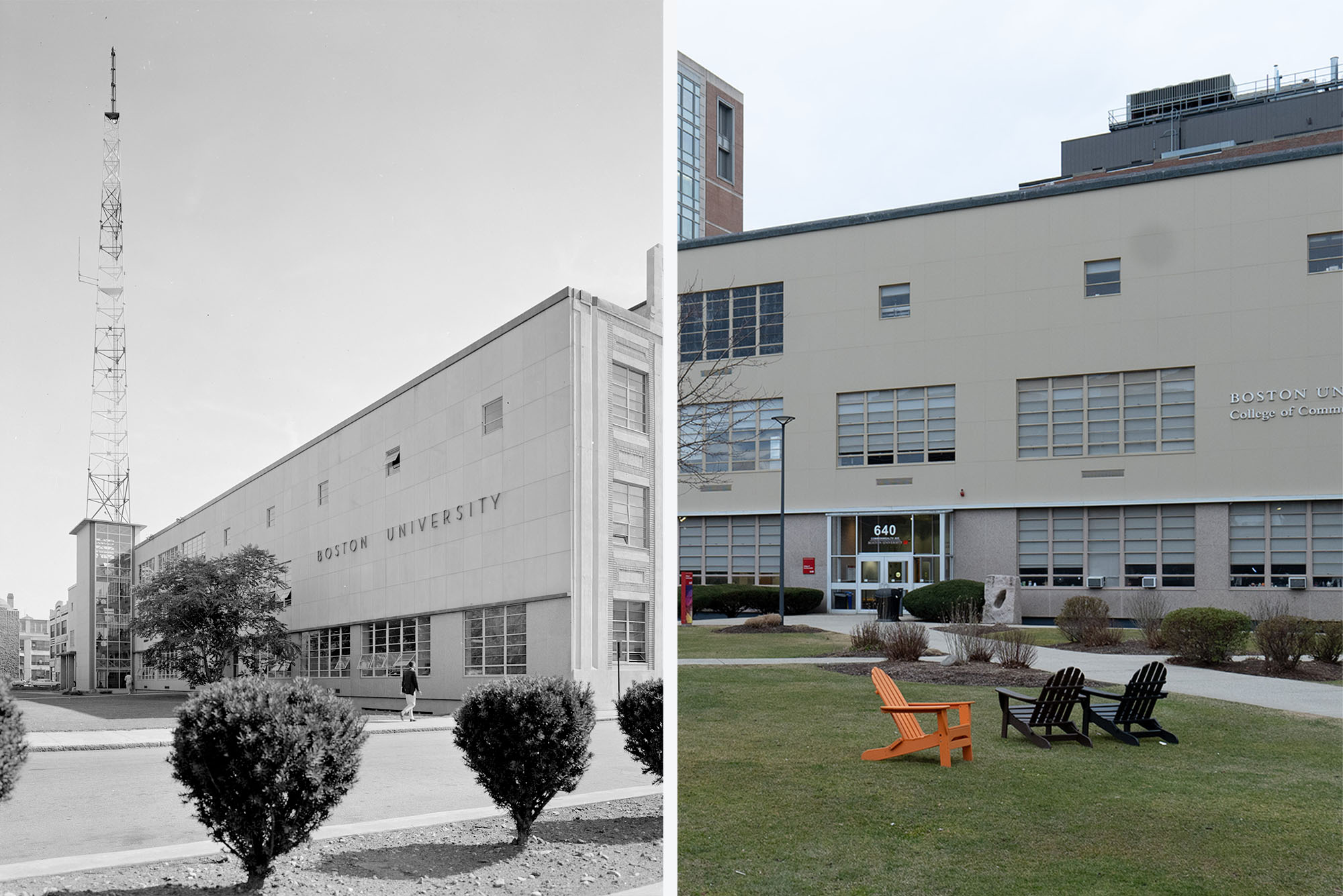COM’s Newest Journalism Grad Took Her Time

Fifty-five years separated Betsy Dribben’s arrival at what was then known as BU’s School of Public Communication and her graduation from the College of Communication.
COM’s Newest Journalism Grad Took Her Time
Betsy Dribben left BU in 1968—55 years later she returned to finish her degree
To say Betsy Dribben has lived an interesting life is an understatement. She’s lived several.

Dribben spent her early childhood in Manhattan. Her father, Irwin Dribben, was the official photographer at New York City’s Pierre hotel. He documented the mingling of royalty, celebrities, and war heroes—Marilyn Monroe, J. Paul Getty, and Eleanor Roosevelt among them. The parents of Hollywood stars Eva and Zsa Zsa Gabor owned their apartment building, and Alfred Hitchcock was a neighbor.
Later in life, Dribben earned a degree in sociology and became an attorney. She worked as an aide on Capitol Hill, handled media for a series of presidential debates for the League of Women Voters, and represented the Humane Society International in Europe and the United Nations. She traveled the world with her husband, Pulitzer-winning war correspondent Roy Gutman, and the couple raised a child, photojournalist Caroline Gutman.

Now, at 78 and living in northern Virginia, she’s head of advocacy for the Multifaith Alliance, a nonprofit organization that provides humanitarian aid to Syria. Oh, and she’s about to graduate from the College of Communication.
Dribben enrolled in the master’s in journalism program in 1967, when COM was named the School of Public Communication, but dropped out the following year for financial reasons. When she approached the journalism department last year with the idea of completing her degree, Maggie Mulvihill, an associate professor of the practice of computational journalism, was assigned to advise her. Dribben has since completed her final project—a 2,500-word story about her father—and is set to graduate.
Bostonia spoke with Dribben about her 55-year journey to a journalism degree.
Q&A
With Betsy Dribben
Bostonia: What drew you to BU originally?
Betsy Dribben: I was at Wheaton College in Norton, Mass. I worked on the school paper. I’d been an intern on Capitol Hill. I was interested in politics and law and journalism, and BU seemed like the right choice for me. It was a really good experience academically, socially, and politically. I learned a lot the first time, and a whole lot more the second time.
Bostonia: Your husband is a journalist, your daughter is a photojournalist. You’ve been around journalism since leaving BU—how has that influenced your life?
Betsy Dribben: In advocacy, journalism plays a very big role. In my dealings with reporters, I’m able to help them decide where the story is because I have done journalism. I still love to write, and returning to this program has reminded me how much I love to get the story, how much I love the research, how much I love talking to people and hearing what they have to say. BU gave me a great gift by saying, “OK, you want to finish? We’ll work with you.” And then they gave me Maggie as an advisor. It’s funny, in doing this I never thought, “How much am I really going to learn?” But I came away having learned so much.
Bostonia: What made you want to return and finish your degree?
Betsy Dribben: Over the decades I thought about it. But of course life intervenes, and time just disappears. But two years ago I was at a dinner party, and one of the guests was a house husband who had raised their children and had decided, in his 50s, to get his master’s degree. And, more recently, I know a Syrian American woman. She’s in her late 30s and, while she had a professional degree over in Syria, she has now gone back to school in the US to take on a different career. I thought “Bravo!” It was the convergence and the inspiration of these two people. So, I thought, “Well, I’d like to go back and try to finish my degree.”
Bostonia: You had to complete a major project to finish the degree—how did you decide on your subject?
Betsy Dribben: Working with Maggie, we decided on the topic of my father, who was a prominent photographer in New York from the 1940s through the 1960s. He covered café society in that era, which was not just wealthy people like the Vanderbilts and the Whitneys, but also the celebrities, the war heroes, the poets. I interviewed my father in my 30s and had transcribed those interviews. So, I had the legacy of written interviews, plus all of his photographs.
Bostonia: What did you learn from working on this project?
Betsy Dribben: Maggie is a digital goddess. She knows everything about the digital world, and we would have these chats where she’d say something like, “Have you tried the FBI vault?” or “Have you looked at the police blotter for New York City?” Trying to put my father’s career in perspective—this is an era where just about everyone is gone now. Maggie helped me figure out how to get to the relatives of some of the people my father knew, and I had wonderful talks with children and grandchildren. She helped me become more sophisticated as a researcher. And then when the writing started, she challenged me. I’m so appreciative of BU. It’s been fantastic to go down this rabbit hole. It is part of history. It’s been a terrific experience to pay tribute to my father’s legacy. And, of course, it is wonderful to soon be able to say I am a BU graduate.
This interview has been edited for brevity and clarity.
Comments & Discussion
Boston University moderates comments to facilitate an informed, substantive, civil conversation. Abusive, profane, self-promotional, misleading, incoherent or off-topic comments will be rejected. Moderators are staffed during regular business hours (EST) and can only accept comments written in English. Statistics or facts must include a citation or a link to the citation.